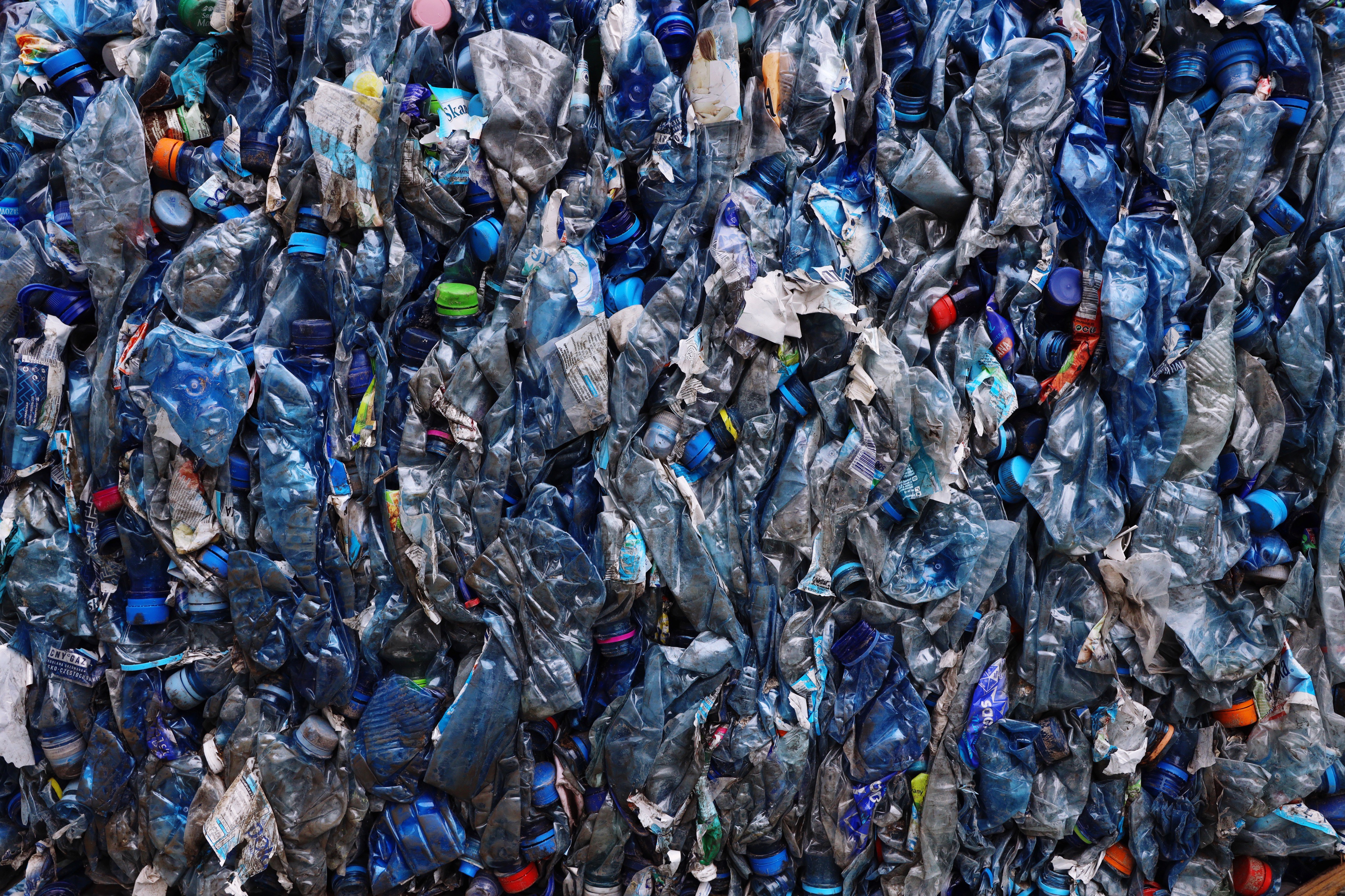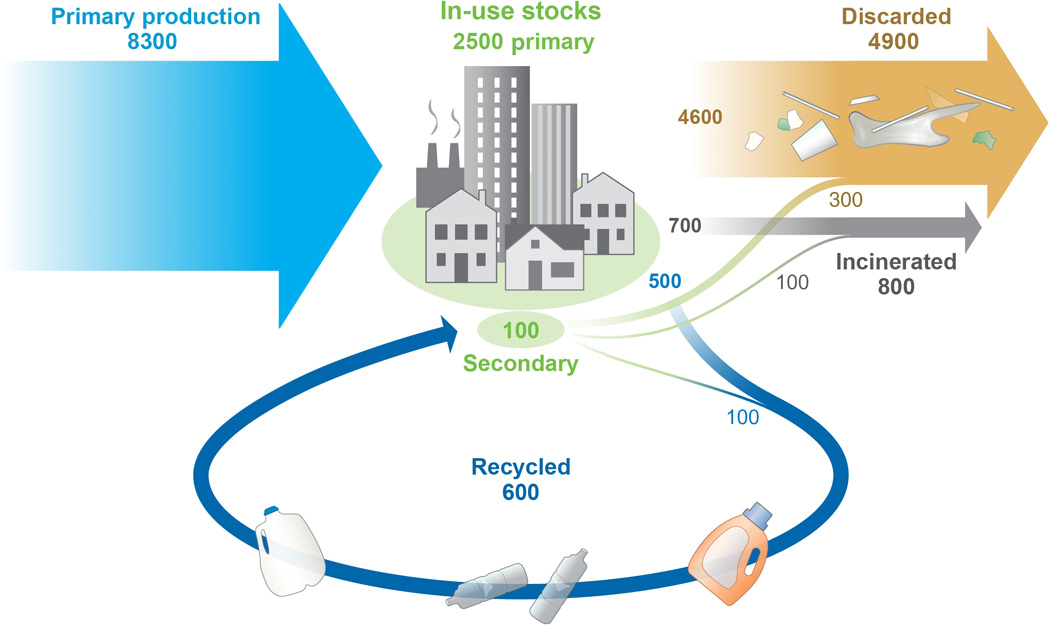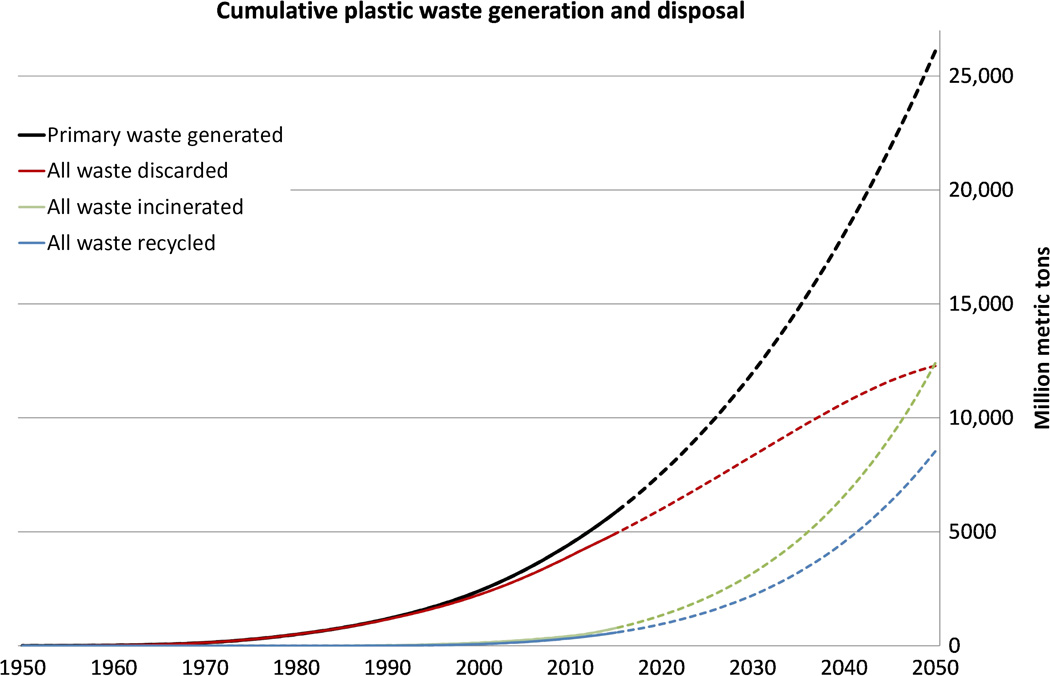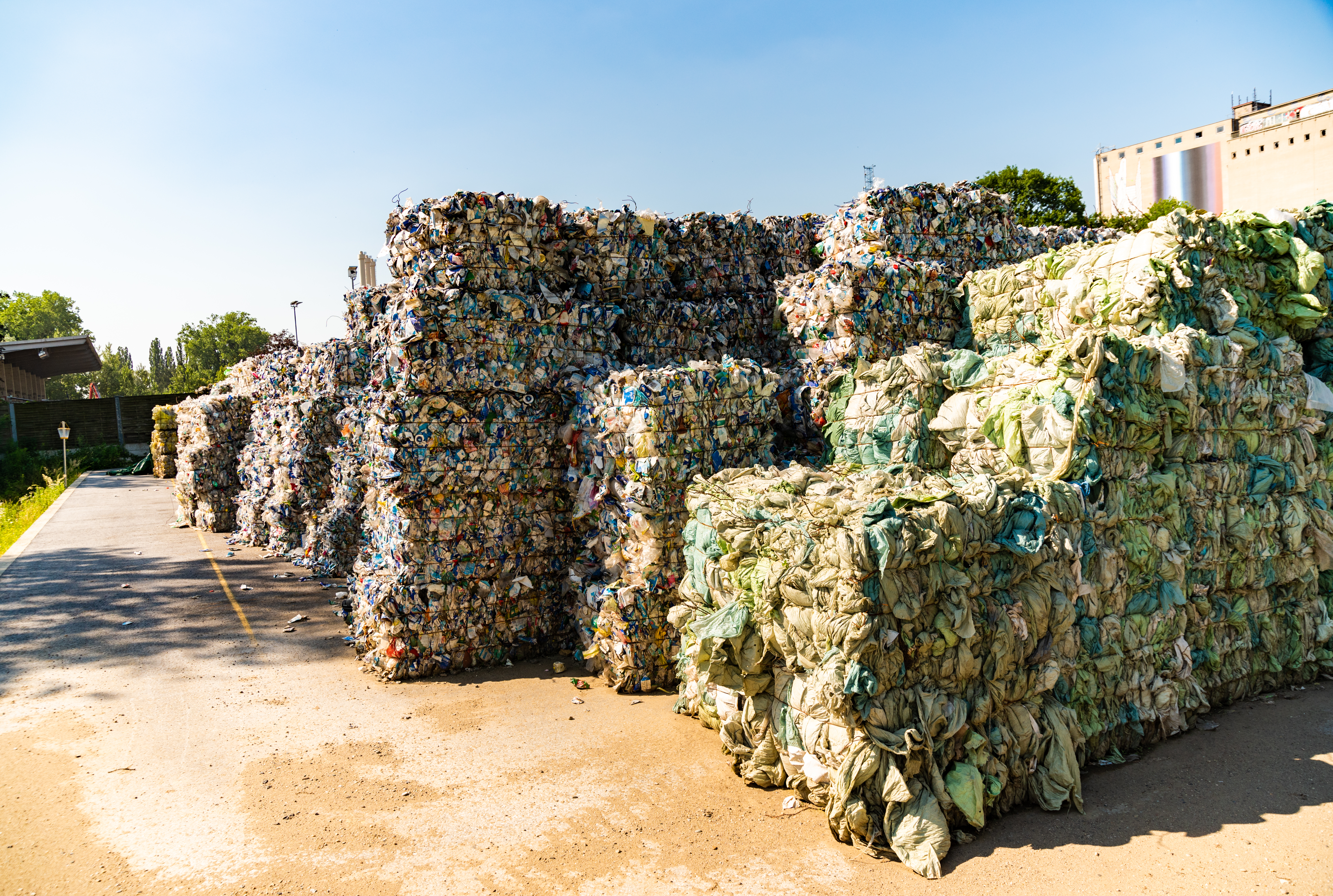
Overview of the Plastic Waste Crisis
What percentage of plastic is recycled globally? A striking statistic from Bren School professor Roland Geyer, published in Science Advances, reveals a daunting truth: 91 percent of plastic waste has never been recycled.
Global Plastic Pollution Statistics
Geyer's research indicates that of the over 8 billion metric tons of plastic produced worldwide, only 9 percent has been recycled as of 2018. The remaining plastic waste has either accumulated in landfills or the natural environment (79 percent) or has been incinerated (12 percent).
Figure 1. Product lifetime distributions for the eight industrial use sectors plotted as log-normal probability distribution functions (PDF).

Figure 2. Global production, use, and fate of polymer resins, synthetic fibers, and additives (1950 to 2015; in million metric tons).

Fig. 3 Cumulative plastic waste generation and disposal (in million metric tons).
Solid lines show historical data from 1950 to 2015; dashed lines show projections of historical trends to 2050.

Recognition and Responses
The data has garnered significant attention, including being featured in the 2018 United Nations Environment report “Single-Use Plastics: A Roadmap for Sustainability."The report examines efforts to reduce single-use plastic consumption.
The Importance of Reliable Data
This statistic was so impactful that it was declared the Royal Statistical Society’s (RSS) 2018 International Statistic of the Year. David Spiegelhalter, RSS president, emphasized the statistic's role in highlighting the severity of the plastic waste problem.
The RSS, a prestigious organization founded in 1834, underscores the importance of statistics in comprehending and addressing global issues. The 2018 Statistics of the Year, selected from over 200 nominations, reflect the year's most pressing challenges.

Conclusion
The stark statistic from the Bren School serves as a wake-up call to the global community. It underlines the urgency of addressing the plastic waste crisis and reinforces the need for continued research, policy changes, and public awareness campaigns. As we move forward, the role of institutions like the Bren School and reliable statistical data becomes ever more critical in shaping a sustainable future.
Full Story at: The UCSB Current
Credit: Andrea Estrada




